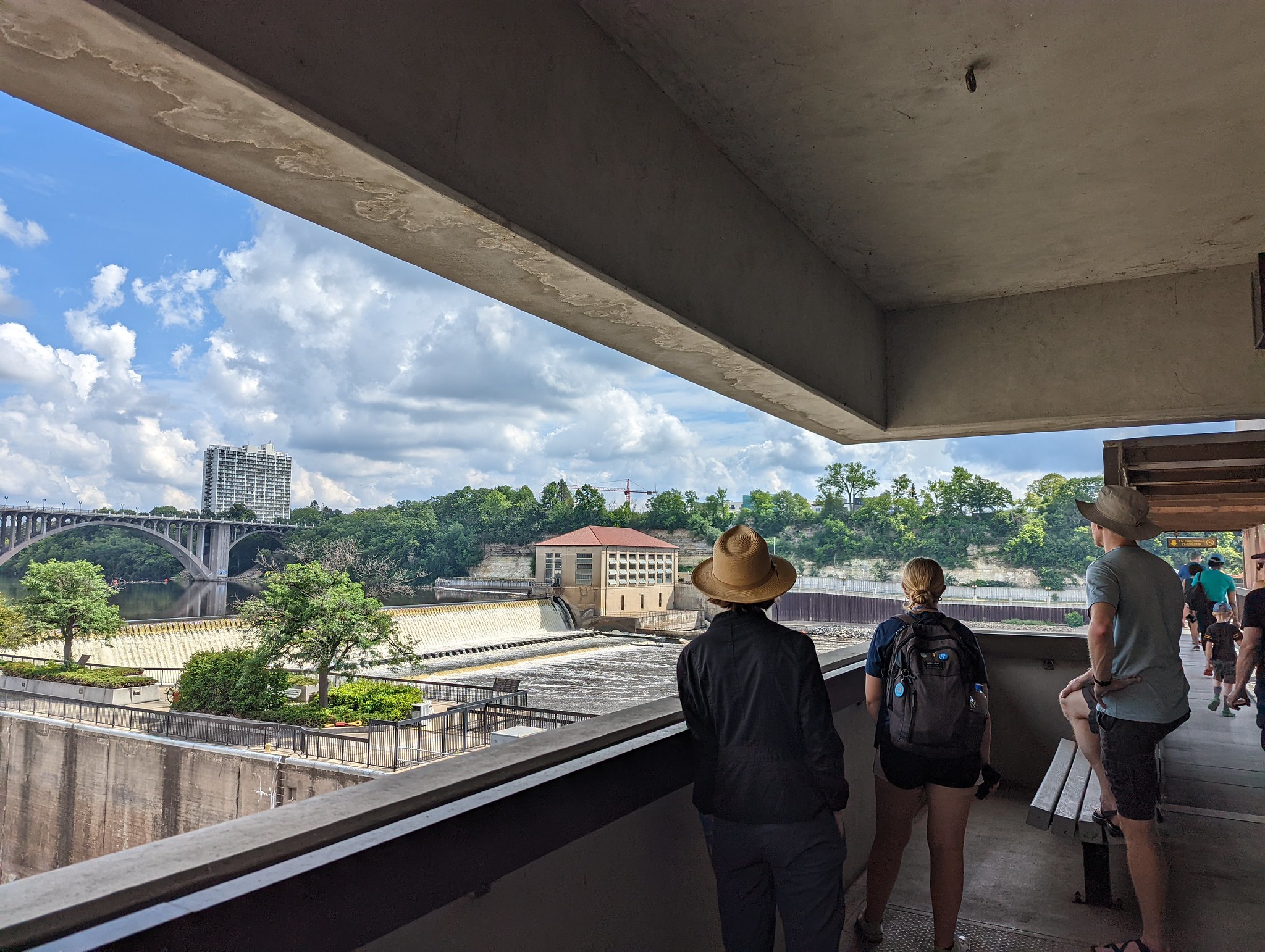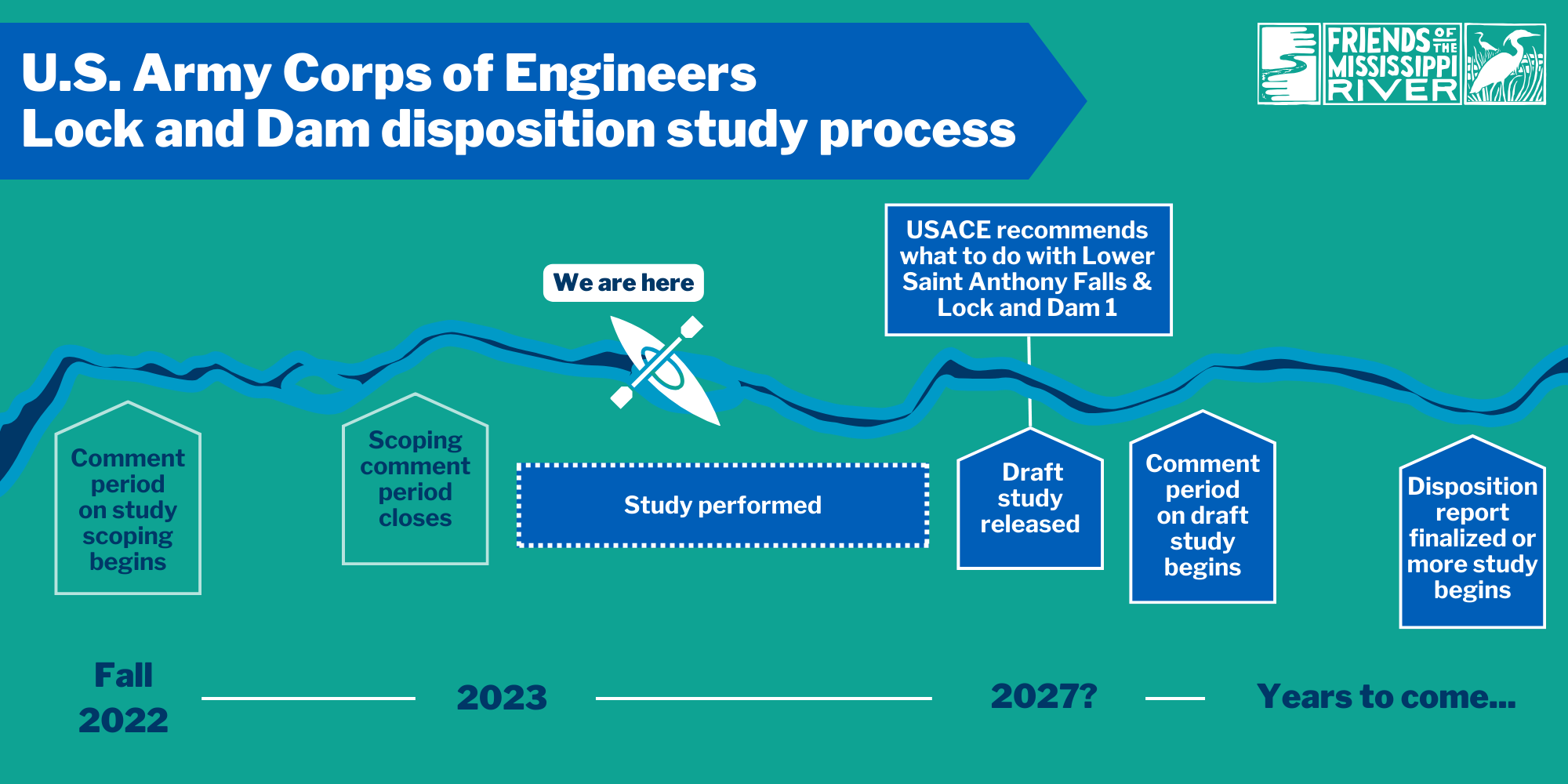The latest on the Twin Cities' lock and dam studies

The study that will determine the future of two metro locks and dams has been underway since 2022. Unfortunately, at this point, the earliest it may be done is 2027.
We think that pace is too slow.
Congress passed the bill that closed the Upper St. Anthony Lock, which started this disposition study process, in 2014. Ten years on, the Corps hasn’t completed a disposition study for any of the three locks that are now functionally obsolete.
We’re advocating with our congressional delegation to get the study the full funding it needs to be completed as quickly as possible.
Removing two metro locks and dams would reconnect 39 miles of river through the Mississippi's only gorge, which is located right here in the heart of the Twin Cities. But is dam removal the best scenario for our metro river? There's a lot to find out and consider.
While the disposition study slowly moves on, the locks and dams continue to age. As we saw this summer when the Rapidan Dam failed on the Blue Earth River in southern Minnesota, we can’t afford to wait too long to decide what to do about obsolete dams. Eventually, these structures may deteriorate to the point of hazard.

Catalyzing research
While critical and urgently needed, the Army Corps’ disposition study won’t provide all of the information we need to make an informed decision about dam removal.
That’s why FMR and our partners are also working to bring more data and more perspectives to the table.
We’re continuing to convene researchers to develop and seek funding for research projects to help answer some of the questions we’ve heard community members and stakeholders raise. We anticipate that studies about sediment transport and the potential economic impacts of dam removal will get underway in the coming months, with more to come after that.
Listening to tribes
We also believe that major decisions about the future of the river gorge shouldn’t be made without the input of Dakota tribes. Dakota people consider this area of the Mississippi River to be the birthplace of their people.
While the Army Corps is required to conduct a tribal consultation as part of its study process, FMR is supporting more robust engagement.
In collaboration with Owámniyomni Okhódayapi, FMR has begun meeting with the elected leaders of the four Dakota tribal nations that share boundaries with Minnesota to hear from them about what, if any, role they would like to have in deciding the future of these locks and dams. We also want to hear what research questions we may be able to help the tribes get answers to. At this time, these are very preliminary conversations, but we hope that they will continue.
Stay informed
We'll update our advocates on the Army Corps study's progress and let you know when there's another chance to weigh in on the future of the river.
For more information about the disposition study in general, please contact FMR Land Use & Planning Program Director Colleen O'Connor Toberman.
Become a River Guardian
Sign up and we'll email you when important river issues arise. We make it quick and easy to contact decision-makers. River Guardians are also invited to special social hours and other events about legislative and metro river corridor issues.